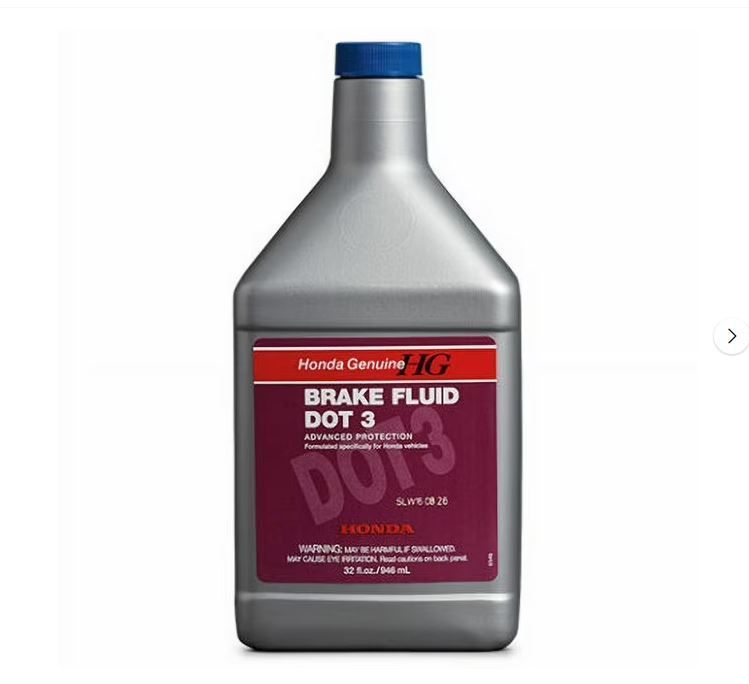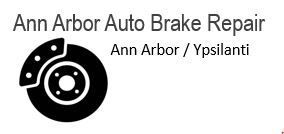When Should Brake Fluid Be Changed?
Why is it Important to Replace?

The Importance of Brake Fluid
Brake systems in vehicles have evolved significantly since the first automobile rolled through the streets of Ann Arbor. Among the most common and important systems today is the hydraulic brake system, where brake fluid plays a crucial role in activating the vehicle's brakes. When the driver presses the brake pedal, the brake fluid transmits the force through the hydraulic system, creating pressure that activates the brakes at each wheel. Without this fluid, the system would not function efficiently, and stopping the vehicle would require an overwhelming amount of force. While most modern vehicles rely on hydraulic systems, other vehicles, such as lawn tractors or go-carts, may use mechanical systems that utilize levers or cables to engage the brakes. Electric vehicles may also employ electronic circuits to send signals to the brakes. Regardless of the system, however, brake fluid remains essential in hydraulic systems, ensuring smooth and effective braking to bring the vehicle to a safe stop.
How Does Brake Fluid Work?
You know that brake fluid is essential for your vehicle, but do you fully understand its role? In essence, brake fluid enables your brakes to function effectively. When you press the brake pedal, the pressurized fluid travels through the brake lines to the calipers, which then push the brake pads against the rotors. This action generates the necessary pressure and friction to stop your wheels. Without clean, adequate brake fluid, this crucial process can fail, leading to dangerous situations.
Signs of Low or Contaminated Brake Fluid
Your vehicle will often signal when something is wrong, and low or dirty brake fluid is no exception. Here are some warning signs to watch for:
- Illuminated Brake Light on Dashboard: This warning light indicates potential issues, including low or dirty fluid. Always investigate any dashboard alerts promptly.
- Brake Pedal Problems: If your brake pedal feels harder to press, sinks to the floor, or offers little resistance, it may be a sign of low or contaminated fluid, or air in the braking system.
- Fluid Around the Wheels: Puddles of fluid near your wheels may indicate a brake fluid leak, which requires immediate attention.
Failing to address these symptoms can lead to catastrophic brake failure.
What Causes Low or Dirty Brake Fluid?
While brake fluid doesn’t need to be changed as frequently as some other fluids, it can become dirty or low over time. Potential causes include:
- Leaks: External leaks can create visible puddles, but internal leaks, such as into the brake booster, can go unnoticed and lead to serious damage.
- Worn Brake Pads: As brake pads wear down, more fluid may accumulate in the calipers, resulting in lower fluid levels in the master cylinder.
What Happens When You Drive with Contaminated Brake Fluid?
Neglecting to change dirty brake fluid can have dire consequences. If your brake fluid runs low or becomes contaminated, you risk complete brake failure—an alarming safety hazard. In the event of brake failure, it’s critical to remain calm and follow safety protocols: pump the brake pedal to activate the lights, engage your hazard lights, and gradually use the parking brake to slow down safely.
Why / When to Change Brake Fluid?
Dirty brake fluid can compromise your braking system’s performance. Contaminants like moisture and debris can lower the boiling point of the fluid, making it more susceptible to vaporization. Statistics reveal that brake fluid contamination can lead to a 25% reduction in braking efficiency. Ignoring the need to change brake fluid that has become dirty through regular use can lead to brake failure, putting you and others at significant risk.
Your brake fluid plays a vital role in ensuring your vehicle stops effectively, yet it’s often overlooked. Don’t wait until you experience problems—regularly check and change your brake fluid to maintain optimal braking performance and safeguard your safety on the road. Prioritizing maintenance can prevent costly repairs and potentially life-threatening situations. If you notice any signs of low or dirty brake fluid, stop by your trusted auto care center at
Ann Arbor Auto Brake Repair for a thorough inspection. Call us up at (734) 537-7344 or
request a quote at Ann Arbor Auto Brake Repair today.
